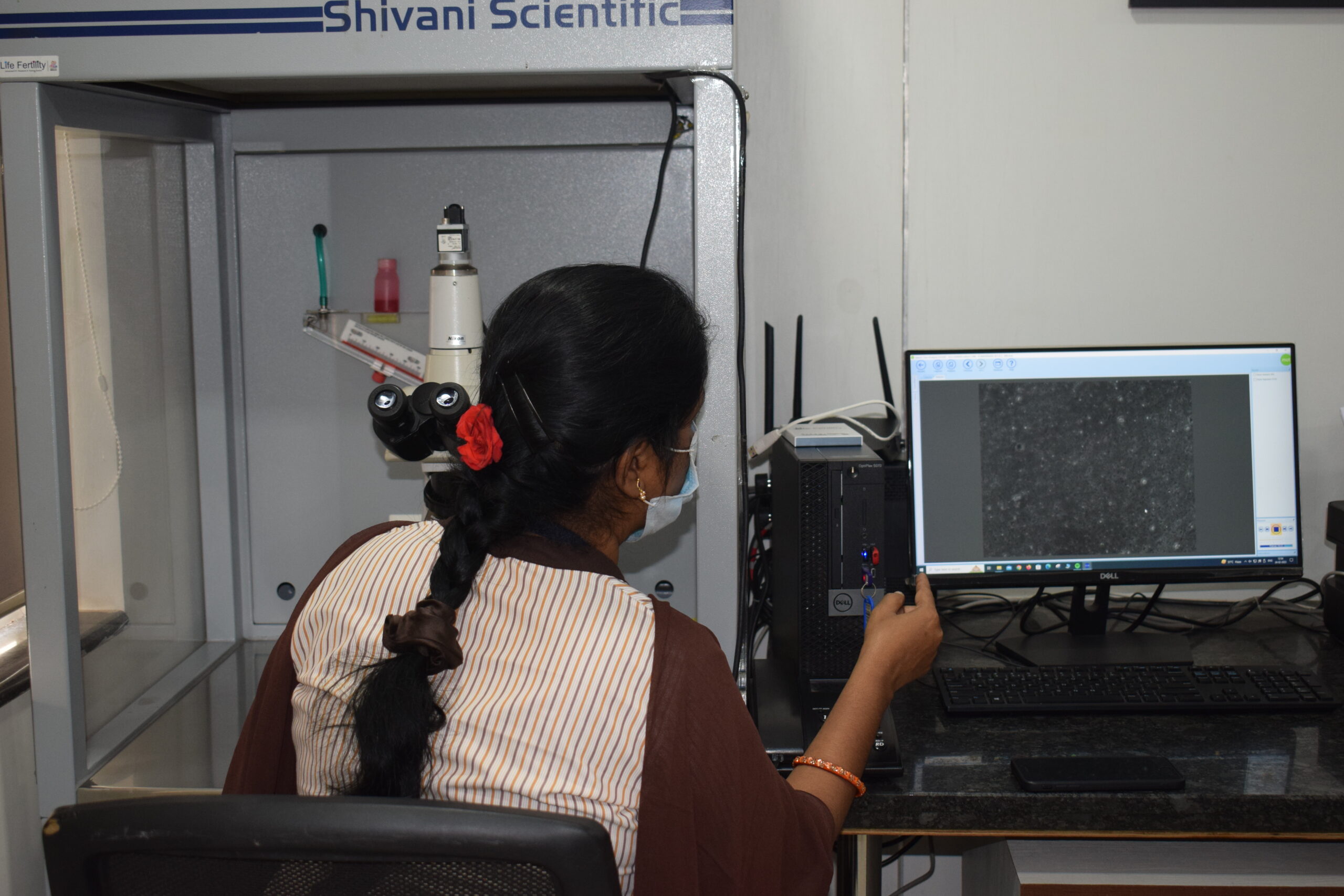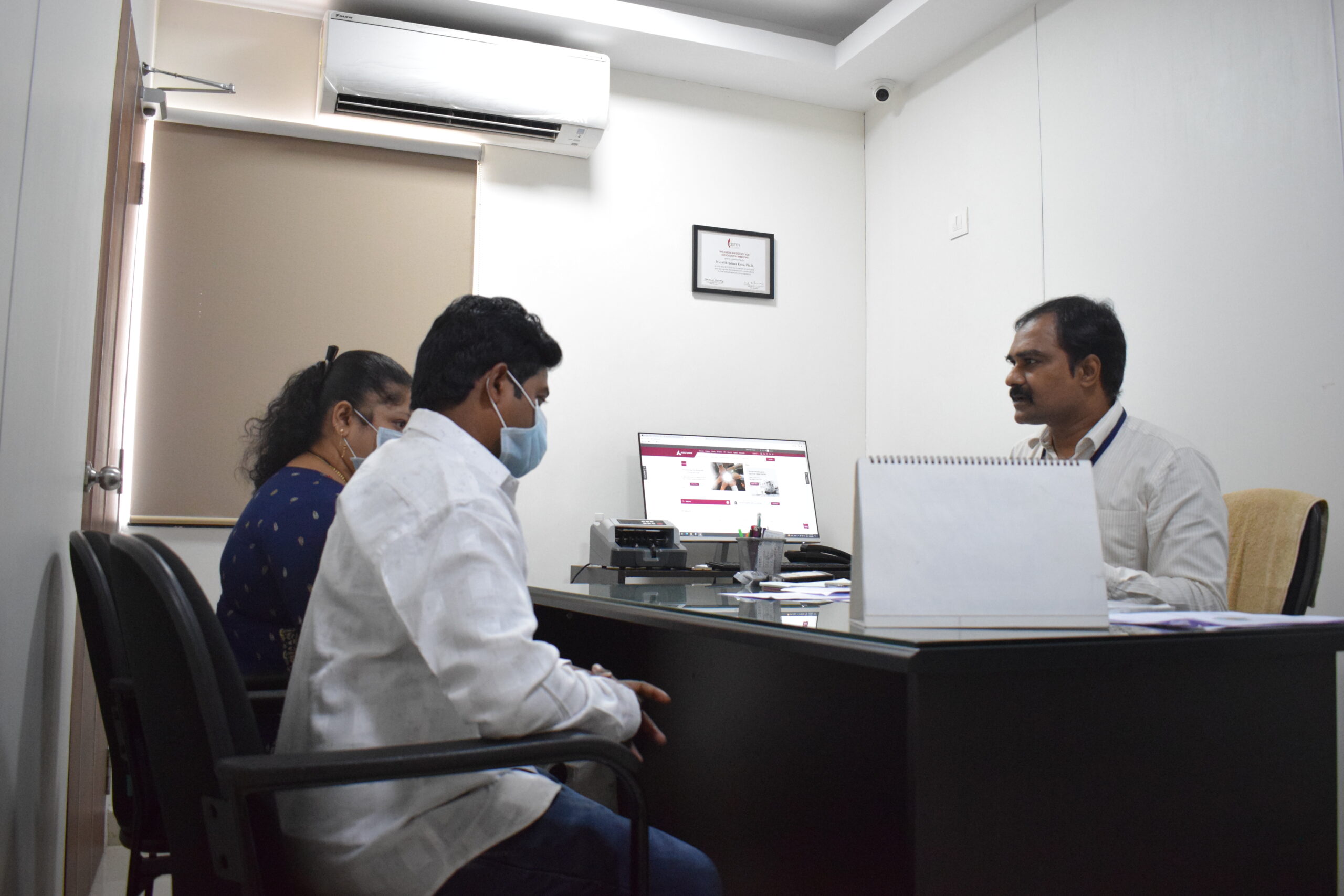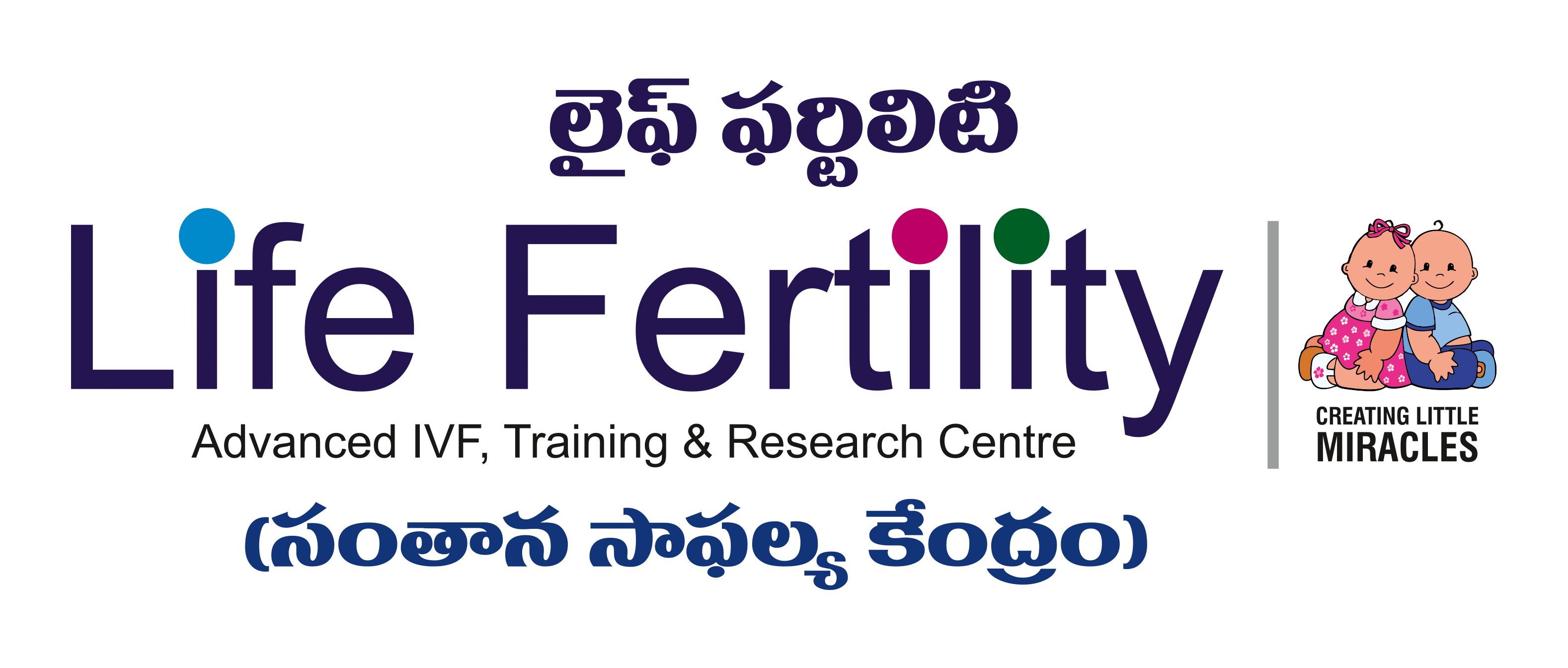Intracytoplasmic Sperm Injection(ICSI)
Intracytoplasmic Sperm Injection (ICSI) is an advanced assisted reproductive technology (ART) technique used in the treatment of infertility. It is a specialized form of in vitro fertilization (IVF) that involves the direct injection of a single sperm into an egg to facilitate fertilization. ICSI is particularly beneficial for couples facing male infertility issues or those who have experienced previous IVF failures.

1. Procedure:
- Ovarian Stimulation: The woman undergoes ovarian stimulation to produce multiple eggs.
- Egg Retrieval: Mature eggs are retrieved from the woman’s ovaries through a minor surgical procedure.
- Sperm Collection: A sperm sample is collected from the male partner or a sperm donor.
- Fertilization: A single sperm is injected directly into each mature egg using a microneedle.
- Embryo Culture: Fertilized eggs (embryos) are cultured for a few days in a laboratory to allow for development.
- Embryo Transfer: One or more healthy embryos are selected and transferred to the woman’s uterus.
2. Indications for ICSI:
- Male factor infertility, such as low sperm count, poor sperm motility, or abnormal sperm morphology.
- Couples with a history of previous IVF failure.
- Cases where there are difficulties with conventional fertilization during IVF.


3. Male Factor Infertility:
- ICSI is often recommended when the male partner has a low sperm count, poor sperm motility, or other issues affecting sperm quality.
- It allows for the selection of a single sperm for injection, overcoming fertilization barriers associated with male infertility.
4. Success Rates:
- Success rates for ICSI are generally high, especially in cases where male factor infertility is the primary concern.
- The overall success of the procedure can be influenced by various factors, including the woman’s age, the quality of the embryos, and the underlying cause of infertility.


5. Risks and Considerations:
- While ICSI has proven to be a successful technique, it is not without risks. There is a slightly increased risk of genetic abnormalities in children conceived through ICSI compared to natural conception.
- The long-term health effects of ICSI-conceived children are still an area of ongoing research.
Book an Appointment
FREQUENTLY ASKED QUESTIONS
What is IVF treatment?
In-Vitro-Fertilization (IVF) is a type of Assisted Reproductive Technology (ART) that helps you get pregnant if you are not able to do so naturally.
When is the right time to start IVF treatment?
Your doctor will explain the best time to start the treatment after the initial consultation, examination, and blood tests. Your clinician may start your treatment on the 2nd or 3rd day of your period.
Is IVF safe & Painful?
IVF is a very safe and effective treatment option and with the latest advancement in medical technology, IVF results have improved significantly.
IVF is not at all painful because the injections used for IVF are purified and injected in subcutaneous form. The egg collection process is done under light sedation which is also not painful. At the time of embryo transfer, anesthesia is not given but it is a 2 to 5 minutes process that hardly causes any pain. Every patient is different; therefore the process will differ from patient to patient. However, when it comes to IVF injections, they are thin and easy and do not require an intervention. They can also be administered under anesthesia if required.
What People Says about Life Fertility Clinic
Google Reviews
What People Says about Life Fertility Clinic
Testimonials

Our Contacts
________
#16-1-25, RS Edifice, Coastal Battery Rd, Collector Office, Jn, Visakhapatnam, Andhra Pradesh 530002